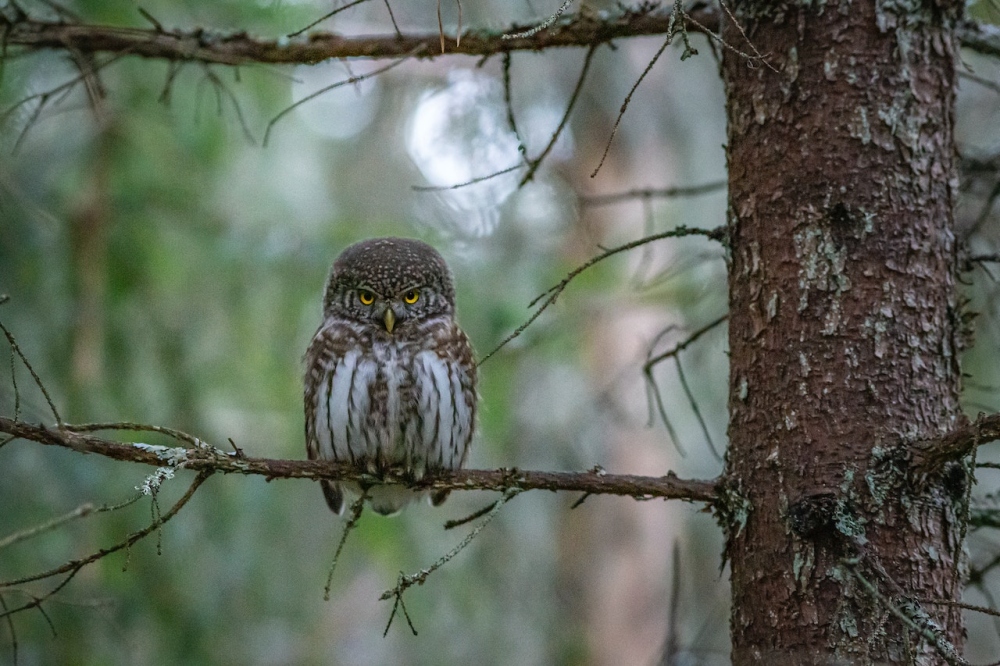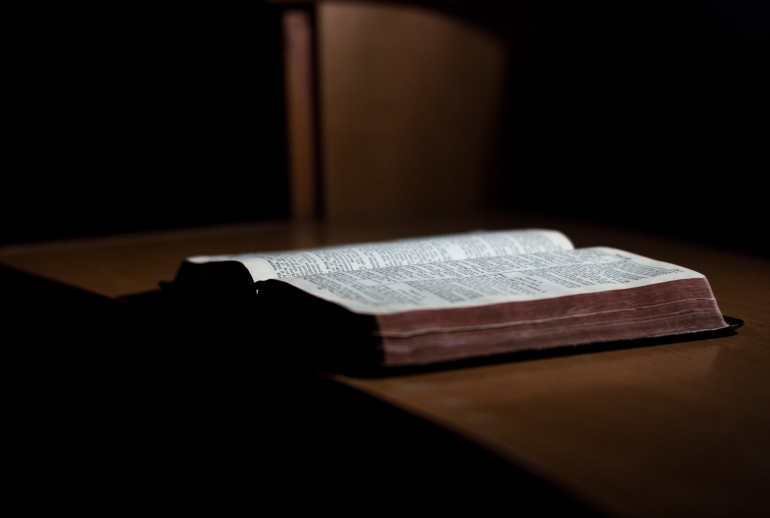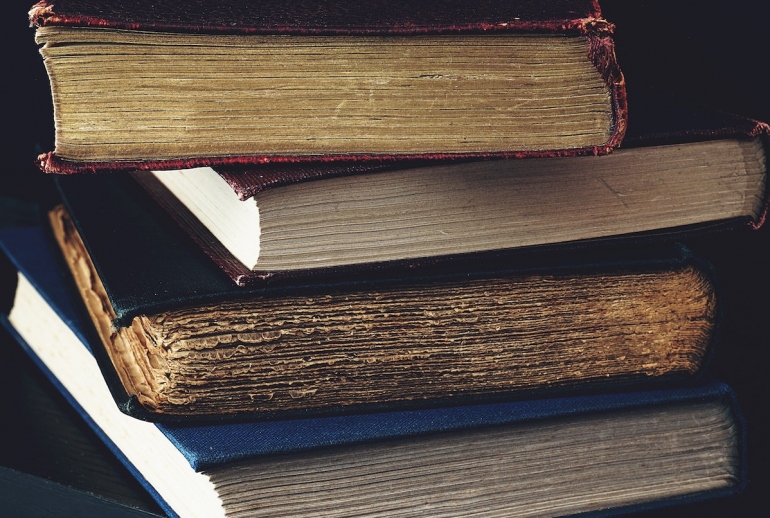Our day begins in Margie’s office with a cup of coffee or tea, after the bird feeders on the deck have been restocked. We sit together and watch the woods, in winter as the sun rises and in summer when it’s already light outside. Usually, bunnies and wild turkeys are out, occasionally deer, and we relish some slow time together. I realize that most people may not have such a daily opportunity, and that it is not anything we deserve and is a factor of our stage in life, but we are grateful for it.
We make small talk, discuss our schedule, share concerns and worries, mention needed tasks, review priorities. And each morning Margie reads aloud two poems by Mary Oliver in Devotions (2017). We’ve slowly moved through the 442-page book and profited so much that we may start again at the beginning when we reach the final page.
So often there are images that seem just right, so that my imagination sees the world a bit differently. Like the opening six lines from “Little Owl Who Lives in the Orchard”:
His beak could open a bottle,
and his eyes—when he lifts their soft lids—
go on reading something
just beyond your shoulder—
Blake, maybe,
or the Book of Revelation. [p. 319]
Or these, from “The Old Poets of China”:
Wherever I am, the world comes after me.
It offers me its busyness. I does not believe
that I do not want it. [p. 178]
Or these opening lines from “I Wake Close to Morning”:
Why do people keep asking to see
God’s identity papers
when the darkness into morning
is more than enough?
Certainly any god might turn away in disgust. [p. 3]
Or these closing lines from “When Death Comes”:
When it’s over, I want to say: all my life
I was a bride married to amazement.
I was the bridegroom, taking the world into my arms.
When it’s over, I don’t want to wonder
if I have made of my life something particular, and real.
I don’t want to find myself sighing and frightened,
Or full of argument.
I don’t want to end up simply having visited this world. [p. 286]
I know I have mentioned this before, but I do believe the poet and hymnwriter, William Cowper (1731-1800) has a point. He drew attention to the fact that in Scripture both the first words spoken by human beings (before the Fall) and the last recorded words (in the New Creation) are poetry. He wondered if this indicates whether poetry, in all its allusive grace and metaphor might be our species’ natural mode of communication.
I hope so, and soon we shall see.
Photo credit: Photo by Erik Karits on Pexels: (https://www.pexels.com/photo/brown-owl-perched-on-brown-tree-branch-3782463/)



